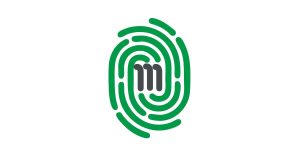
For accountants, multi-tasking may seem like second nature, especially during the busy tax season. But a study from Stanford University has proven that multi-tasking is not good for your brain, nor ultimately for your business.
Stanford put 100 students through a series of three tests and the researchers realized those heavy media multi-taskers are paying a big mental price. “They’re suckers for irrelevancy,” said communication Professor Clifford Nass, one of the researchers whose findings are published in Proceedings of the National Academy of Sciences. “Everything distracts them.”
Social scientists have long assumed that it’s impossible to process more than one string of information at a time. The brain just can’t do it. But many researchers have guessed that people who appear to multitask must have superb control over what they think about and what they pay attention to.
“We kept looking for what they’re better at, and we didn’t find it,” said Ophir, the study’s lead author and a researcher in Stanford’s Communication Between Humans and Interactive Media Lab.
In each of their tests, the researchers split their subjects into two groups: those who regularly do a lot of media multitasking and those who don’t. In one experiment, the groups were shown sets of two red rectangles alone or surrounded by two, four or six blue rectangles. Each configuration was flashed twice, and the participants had to determine whether the two red rectangles in the second frame were in a different position than in the first frame.
They were told to ignore the blue rectangles, and the low multi-taskers had no problem doing that. But the high multi-taskers were constantly distracted by the irrelevant blue images. Their performance was horrible.
Because the high multi-taskers showed they couldn’t ignore things, the researchers figured they were better at storing and organizing information. Maybe they had better memories.
The second test proved that theory wrong. After being shown sequences of alphabetical letters, the high multitaskers did a lousy job at remembering when a letter was making a repeat appearance. “The low multi-taskers did great,” Ophir said. “The high multi-taskers were doing worse and worse the further they went along because they kept seeing more letters and had difficulty keeping them sorted in their brains.” There were even more test by Stanford researchers and every time, the low multi-taskers performed much better than those who felt they had a gift for multi-tasking.
As an accountant, have you ever considered that the practice of multi-tasking was actually hurting more than helping? We would love for you to chime in and tell us what you think and what your experience is with multi-tasking.
Source: Adam Gorlick, Stanford News Service

















Add comment